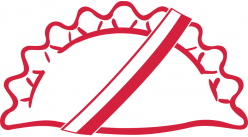Meaning:
Lit. “ass, cock and a pile of rocks”. Which denotes a thing in a state of utter failure and destruction or FUBAR. Poles usually use this to voice disbelief on a specific matter as a business venture, broken marriage or… their own state.
The last example made this somewhat obscure phrase a hit in 2014 when many recordings of private conversations between top-tier politicians representing the then-ruling Platforma Obywatelska party surfaced and led to their collapse in parliamentary elections. In one of these (probably a bit drunken) conversations Bartłomiej Sienkiewicz, then interior minister, used the phrase to declare that one of his own government’s economical programs simply does not exist. See below.
Sometimes gets abbreviated to ChDiKK.
